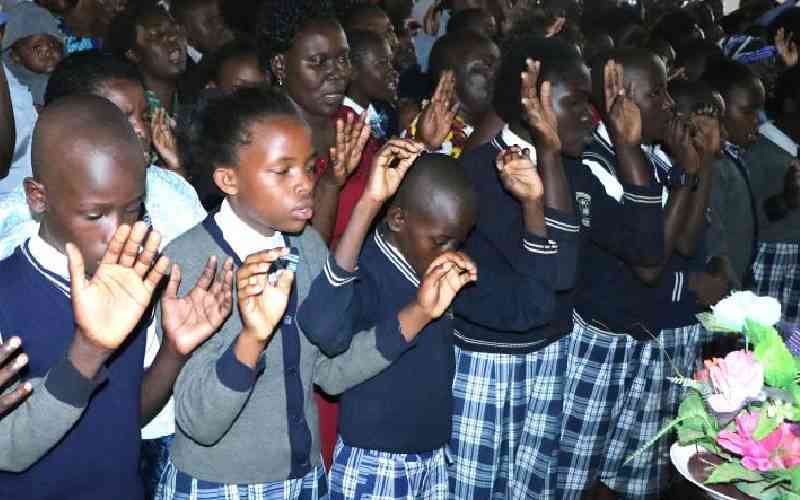×
The Standard e-Paper
Kenya’s Boldest Voice

Little Lillie's Academy class 8 and 6 candidates hold prayers at Friends church Kefinco in Kakamega town on November 27, 2022. [Benjamin Sakwa, Standard]
More than 3.4 million candidates will from today sit three separate national examinations that will mark the start of a major transition from the cutthroat tests that have been the hallmark of the 8-4-4 education system.







